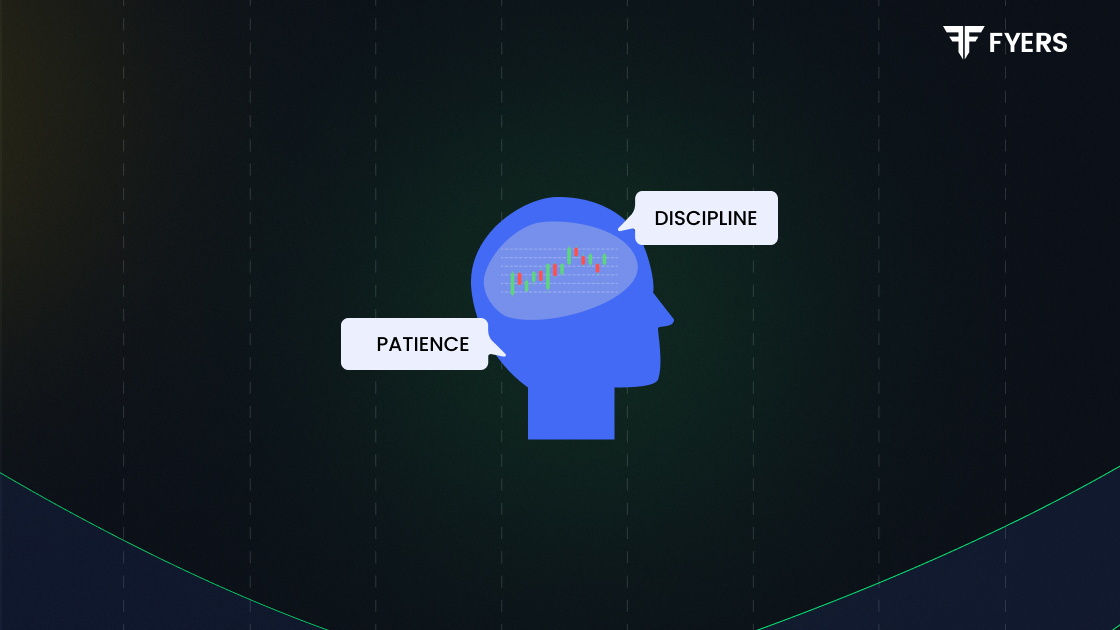

 7 Nov, 2022
7 Nov, 2022
 7 mins read
7 mins read

It's a common belief that trading is all about knowing your niche, including all the technicalities, while taking into account all the other visible factors. However, the failed or rather not-so-successful traders are hidden from none. It's neither their lack of knowledge nor expertise which is a hindrance. Despite nailing all the visible factors on the surface, there are some hidden factors which determine a trader's success. The trader’s mindset determines the course of action, thereby affecting the outcome.
In order to understand the factors which make a trader successful, we ought to decode the hidden trading psychological factors which are known to only a few. In this blog, we try to do the needful by compiling the top 5 psychological trading factors for you:
1. Do Not Make Decisions in Haste
Trading is a quick business. The decision-making in trading has to be spontaneous, as and when the opportunities arise. However, this does not mean that traders can let their emotions sway them by making significant decisions throughout the day. Keeping emotions under control while making decisions is the key. Sentiment of the investor determines the market performance.
If a person has trained his brain to be calm while making decisions in trading, half the battle is won. Winning over one’s own emotional stability helps an individual to understand the mindset of other traders as well. This advantage can provide an edge and a reason to observe disciplined emotional stability.
2. Don’t Shy Away From Taking Risks
When you make an investment in a stock market, fear is an inevitable element associated with it. Before overcoming the excessive amount of fear, it is imperative to address that fear is good. Fear helps you to be humble and grounded. However, it’s the excessive fear which needs to be dealt with, while trading.
It is no surprise that an unfortunate news about an investment or a trade might trigger a fear laden mindset, nudging a trader to make a haste decision to liquidate all their holdings. But this is not what trading is all about. As the famous saying goes, “A ship in harbor is safe, but that is not what ships are built for”. Taking risks is a crucial element in trading. As a trader one can never shy away from taking risks.
3. Maintain a “trading” Log
A trader is suggested to maintain a log which contains all the losses and wins, along with the emotional reactions of a trader at that point in time. This will aid in understanding his own personality traits better, and help him recognize whether the decisions made emotionally were correct or not; whether the decisions worked in his favor or not.
For instance, a trader has recorded that he decided to liquidate his other investment after facing a loss in one stock, and this decision was based out of fear which led to an unfavorable outcome for him. This will not only make him understand fear as his personality trait, but will also guide him not to shy away from taking risks, and the course of action he could take if a similar situation arises in the future.
4. Avoid Stagnancy
Trading is a dynamic arena. As a trader you cannot stay in one mindset throughout and expect success. You must keep experimenting towards risk mitigation. Staying ahead in changing times requires a trader to be flexible. As a trader one must have a flexible mindset towards assessing one’s own performance, changing one’s ways by experimenting, being open towards taking risks, being open towards learning the ongoing market trends and even educating themselves if the need arises.
5. Be Adaptive
As a trader one must have an adaptive outlook towards trading, in order to be successful. You cannot expect wins everyday, and cannot get disheartened over each loss. No two days in the trading arena are the same. Accepting volatility in the market is what keeps the traders comfortable.
Viewing the market unpredictability as the beauty of trading helps. This approach will help you assess the market and your own reactions to each profit and loss pragmatically. To conclude, it’s the trading psychology which determines the success of the trader in addition to the knowledge pertaining to trading. It is not only the weaknesses and biases, but strengths alike that one must be aware of, always.
In order to become a successful trader, one must work to understand one’s own emotions, and train the psyche to be mindful while making decisions in perception of threat. When a trader tastes success, he must know how to control his exuberance given nothing is permanent, and the market is in fact unpredictable. Similarly, when a trader faces losses in investment, he must not withdraw into one's own self and shy away from taking further risks. It is imperative to understand one’s emotions of anger, happiness, fear, impatience, indecisiveness, etc, to become a successful trader.
Calculate your Net P&L after deducting all the charges like Tax, Brokerage, etc.
Find your required margin.
Calculate the average price you paid for a stock and determine your total cost.
Estimate your investment growth. Calculate potential returns on one-time investments.
Forecast your investment returns. Understand potential growth with regular contributions.